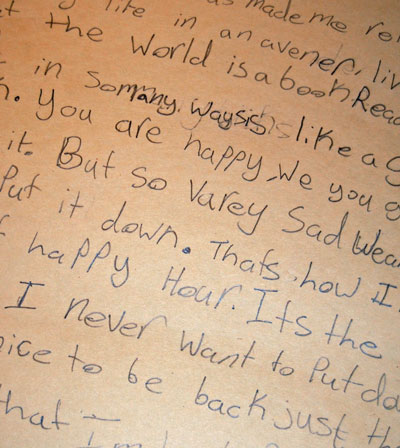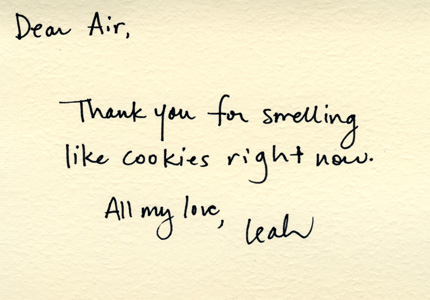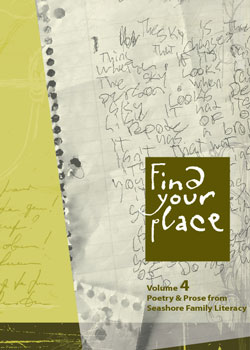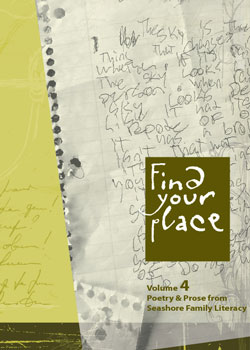Life is like a book

Life, in so many ways, is like a good book.
You are happy when you get to read it.
But so very sad when you put it down.
- Natosha, age 10
 Sunday, June 13, 2010 at 12:00PM
Sunday, June 13, 2010 at 12:00PM  Post a Comment |
Post a Comment | 
Life, in so many ways, is like a good book.
You are happy when you get to read it.
But so very sad when you put it down.
- Natosha, age 10

"There’s always something to be thankful for," says writer Leah Dieterich, who expresses her daily gratitude at thxthxthx.com.
Like Leah, I love the thank you note.
At a young age, my mother taught me the value of expressing gratitude.
As an adult, the thank you notes expanded beyond appreciation for birthday or holiday gifts to include gratitude for a slice of sunshine, a good book, or a smile from a stranger.
I often send thank you notes as letters to those I love: As the sky hangs heavy, I'm thinking of you, how you stand bright against this gray . .
And just as often, I write to myself — in appreciation for all the people, places and feelings that make life deeper, kinder, brighter.
In the writing groups we compose Feel Good Pages. I think of it as an expansion of thankfulness, a chronicle of the parts of life that make us happy and grateful. Students sometimes groan a bit. They've been in school all day. They are tired, depleted and want to whine. And frankly, I do, too. I'm no Pollyanna. But the state of malaise is exactly why we need our Feel Good Pages — to elevate us from daily wear and tear, to remind us of our better selves.
So we write. And like a weak sun made bright with the parting of clouds, the mood in the room shifts and lifts. The more we recall and appreciate the feel good-ness of life, the more we really do feel good. After 10 to 15 minutes of writing, the children are bursting to share their pages. We are all smiles and giggles and light.
And really, isn't that the beauty of gratitude?
The truth? I wasn’t crazy about kids.
Teenagers were daunting. Youngsters were alien. And I had no maternal instinct. But that was before I became immersed and attached to the children in the Seashore Family Literacy writing programs. Now I can’t stop thinking about the stories taking shape, the poems that sing, and the earnest efforts of youngsters with hearts wide and willing.
 In each of the writing groups we talk about the importance of being wide awake to the world, and to the power of words — to soothe and heal, to hearten and encourage, to open doors and close wounds. Combining the physical act of writing with the mental and emotional experience of imagination can produce profound results. At Seashore, writing is not just a skill but a powerful vehicle for change.
In each of the writing groups we talk about the importance of being wide awake to the world, and to the power of words — to soothe and heal, to hearten and encourage, to open doors and close wounds. Combining the physical act of writing with the mental and emotional experience of imagination can produce profound results. At Seashore, writing is not just a skill but a powerful vehicle for change.
I’ve been a part of Seashore Family Literacy for nearly six years and I’ve seen change, both in the students and myself. Within this brood of spirited youngsters, plucky tweens, sullen teens and loving volunteers, I have found my place — along with an unexpected tenderness for our young writers.
— Drew Myron
from the Introduction to Find Your Place: Poetry & Prose from Seashore Family Literacy, Volume 4
Tonight is the Book Launch Party for Find Your Place, the annual anthology from Seashore Family Literacy. Students will share their words and sign books. Please join the celebration and help us encourage young writers!
Can't make it to the party? You can still purchase books. Only $12 — and all proceeds benefit the Seashore Writing Programs. You can buy now, or send a check to Seashore Family Literacy, PO Box 266, Waldport Oregon 97394. Thanks for your support!
Although the wind
blows terribly here,
the moonlight also leaks
between the roof planks
of this ruined house.
Sometimes you just want to write because it allows you to talk about it. You are not judged.
 The annual anthology from Seashore Family Literacy is fresh from the press. This year the book features work from all the Seashore writers — 40 students/volunteers/mentors, from ages 9 to 75.
The annual anthology from Seashore Family Literacy is fresh from the press. This year the book features work from all the Seashore writers — 40 students/volunteers/mentors, from ages 9 to 75.
The fourth volume of Find Your Place reflects our growing programs. We started with a teen writing group, and in the last few years have expanded to include grade school and middle school writing groups, along with summer writing camps. We recently added a writing group for adults, too.
I get a bit tender at this time of year, a mixture of exhaustion and achievement. Is this what parents feel? A bittersweet blend of "Thank God this year is over!" and "My God, they are growing up fast!"
Rather than jubilant, I feel a bit wrung-out. Rather than accomplished, I'm writing a mental list of all the things I should have done, shared, been. I fear I'm falling short of giving students what they need.
Last night I pried for feedback. Why do you come to writers group? I asked the teens and volunteers. What do you like best? What needs work? In a haze of end-of-year fatigue, the unspoken question was Does this matter?
This morning I read the student comments, and felt the gentle tug of Yes.
Writing is about finding who you are, about getting the words on paper before your brain bursts from an overload of stories.This is an escape place for me. Writing is like therapy on paper. I have learned a lot. It feels amazing being in a book!